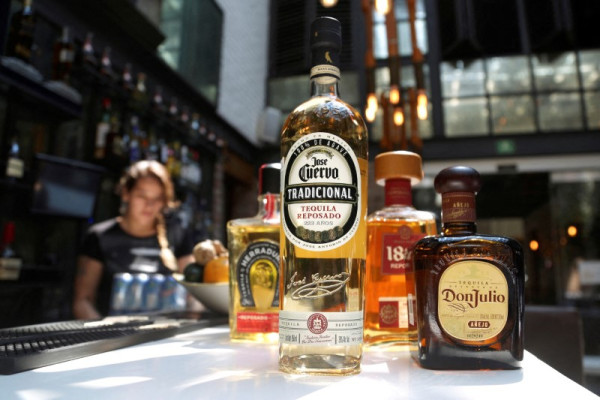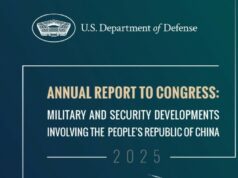
With the threat of a 25% U.S. import tax hanging over them, Mexican tequila manufacturers are anxious that businesses they’ve spent years building will have the rug pulled out from under them.
Melly Barajas, who owns Azteca Wines And Spirits, a 100% woman-staffed distillery in Jalisco state, said her industry has to plan everything – from seasonal hires to bulk sourcing ingredients – months in advance. Now her supply chain is frozen.
“We are on hold and praying that they please try to think things through and not do this,” Barajas said, speaking to Reuters from her office where she has displayed U.S., Canadian
and Mexican flags.
U.S. President Donald Trump has said he plans to impose a 25% blanket tariff on top trade partners Mexico and Canada, accusing them of not doing enough to halt the flow of immigrants and fentanyl. But he agreed on February 3 to a 30-day pause after the countries said they would reinforce their borders.
Tequila – made from the prickly agave plant and used in cocktails like margaritas – has shot up in popularity. In 2023, it surpassed whiskey as the United States’ second best-selling spirit after vodka.
The U.S. imported $3.8 billion of tequila in the first nine months of 2024, according to the U.S. Distilled Spirits Council, up 13% from the same period a year earlier and more than
whiskey, gin, rum, brandy and vodka imports combined.
Like French champagne or Italian parmesan cheese, products called tequila or mezcal must be made in Mexico, so tariffs would push up prices for U.S. buyers.
North American spirits trade associations also say tariffs threaten jobs and could harm the hospitality industry still recovering from the COVID-19 pandemic.
U.S. buyers are likely to opt for other drinks if tariffs are imposed, Barajas said, adding that while countries such as Germany, Spain and Russia were increasingly taking to tequila, it was a slow process.
“The uncertainty is affecting the girls, the whole production system, everything we have worked for during so many years, because of a tariff,” Barajas said.
With Reuters inputs
Thirty eight years in journalism, widely travelled, history buff with a preference for Old Monk Rum. Current interest/focus spans China, Technology and Trade. Recent reads: Steven Colls Directorate S and Alexander Frater's Chasing the Monsoon. Netflix/Prime video junkie. Loves animal videos on Facebook. Reluctant tweeter.




